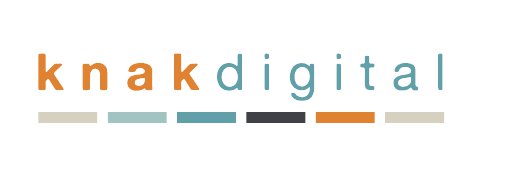In the wake of recent tech layoffs and economic uncertainty, job seekers are facing a new threat: increasingly sophisticated scams designed to exploit their vulnerability. These aren’t the dated Nigerian royalty money wire emails – Today’s scammers use realistic LinkedIn profiles, legitimate-looking job descriptions, and professional communication to run their game.
The Breakdown of Today’s Modern Job Scam
Recently, I encountered a scam so well-crafted that it almost got me. The approach began with what appeared to be a legitimate outreach from a Global Talent Acquisition Recruiter supposedly representing Disney. The initial contact followed all the expected professional protocols:
- A properly formatted LinkedIn profile
- A detailed job description
- A professional email signature
- Use of standard recruitment tools like Calendly
But something felt off. Despite supposedly working for big names like Home Depot, Disney, and Accenture for nearly a decade, this recruiter had only 313 LinkedIn connections—a red flag for any professional in talent acquisition that typically depends heavily on the platform for networking and sourcing. Their LinkedIn activity was suspiciously recent, with no posts older than three months. That’s when I dug deeper and confirmed it was a scam.
The New Playbook: How They Scam
Today’s scammers are using several sophisticated approaches:
1. Impersonation of Real Recruiters
Rather than creating entirely fictional personas, scammers are now impersonating real recruiters from legitimate companies. This makes traditional verification methods less reliable, as the company they claim to represent actually exists.
2. Compensation too good to be true
A recent scam attempt promised “$50-500 per hour for 60-90 minutes of daily work” with an “$800 base for three days.” Even if that sounds obviously fake to experienced professionals, desperate job seekers might take the bait.
3. Leveraging tech tools
Scammers are leveraging legitimate business tools to appear more credible. In one case, they used Calendly for scheduling but required Facebook authentication – a technique known to be associated with Mac malware distribution, according to recent TechRadar reports.
How to Protect Yourself from these Scams
Immediate Red Flags:
- Requests for payment to secure interviews. There is absolutely no reason why any job seeker should be paying an employer. Ever.
- Early requests for Social Security Numbers or banking information. Don’t fall for the “if you can buy your hardware/software and we will reimburse you–just provide us your bank info so we can deposit the money.”
- Suspicious text messages asking to continue the conversation on other platforms. If it’s an ATS platform the company uses, this could be an exception.
- Job offers without proper interviews. Was there really no interview process at all to vet your skills? All employers should be risk-averse and will be taking the right steps to evaluate candidates so they are the right fit.
- Requirements to authenticate through social media for scheduling. Facebook, IG, TikTok–I can’t think of any reason why an employer would need data and authentication verified through social media channels.
Advanced Verification Steps:
- Domain Investigation
- Use whois.com to check when company domains were registered. If the domain was created recently, I would be highly suspicious.
- Compare registration dates with claimed employment dates
- Verify email addresses match official company domains. Beyond just job scams, this is the number one strategy I use when determining if an email is a phishing scheme. Often, the domain does not match up to the company’s domain the sender is impersonating.
- Profile Analysis
- LinkedIn review: What is the history of their activity? What is the date of the profile created?
- Verify the recruiter’s employment through company directories. Can you research their existence on LinkedIn and are they connected to other employees with that company? Do their experience dates align with the company’s history?
- Company Verification
- Contact the company’s HR department directly through official channels. Due to the uptick in scams, many employers are including disclaimers on their websites with instructions on what to do if you are unsure about the authenticity of outreach. If there is a contact, email them to ask if the recruiter outreach is legitimate.
- Cross-reference job postings on the company’s official career page. Nearly all employers keep their current job postings up to date on their career pages. Be more cautious if the job only exists on third-party job boards.
What Companies Can Do
Organizations can protect their brand and potential candidates by:
- Implementing robust monitoring systems for brand-related web activity. Web (Google alerts) can help.
- Adding clear disclaimers about recruitment practices on company websites.
- Example: “At [Company Name], we never ask for payment, personal financial information, or social security numbers during the hiring process. All official communication will come from an @companyname.com email address. If you receive a suspicious offer, please contact our HR team at hr@companyname.com to verify its legitimacy.”
- Providing dedicated channels for candidates to verify legitimate recruitment efforts. Many entities outline what their entire hiring process looks like, should you be engaged in an interview to move forward.
- Example: 🔹 Step 1: Online application through our official website (no third-party applications accepted).
- 🔹 Step 2: Initial phone screening with a recruiter from @companyname.com.
- 🔹 Step 3: Interview rounds with hiring managers (via Zoom or in-person at our verified office location).
- Maintaining transparent communication about their hiring processes. On career sites,
- Reporting fraudulent activities to authorities like the FBI and FTC
Dive into this article for more information!
The Bottom Line
In today’s competitive job market, the pressure to secure employment can make anyone vulnerable to sophisticated scams. Remember: legitimate recruiters will never request sensitive personal information in initial communications, and if an opportunity seems too good to be true, it probably is.
Stay vigilant, verify independently, and don’t let the urgency of job searching override your security awareness. Your next great opportunity will come through legitimate channels – don’t let scammers compromise your security in the meantime.
- Are Reference Checks Useless? Rethinking Their Value in Hiring
- The Critical Role of Peer Interviews in the Hiring Process
- Hiring Dilemma: Should you Choose the First Candidate you Interview?
- Scammers are Targeting Job Seekers–Here’s How to Outsmart them
- The Power of ‘Next’: The Recruiter’s Guide to Genuine Candidate Interest

